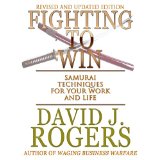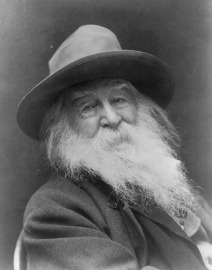A serious writer has the identity of a writer, emphasizes the production of works, and is a skilled craftsman.
Serious Writers Have a Writer’s Identity
 Sometimes a person who one day will become a serious writer doesn’t know herself what she might do with her life. But she feels instinctively that she’s good for something and has some reason for existing. She has a hunch that there is something important in her that’s worth pursuing further. She finds that something in words. She makes herself into a writer–an expert in expressing herself via written language. At times, with some people, writing becomes the center of their identity, and they become another Saul Bellow who said that when he wrote he felt like an artist, but when he was not writing he didn’t feel like anything.
Sometimes a person who one day will become a serious writer doesn’t know herself what she might do with her life. But she feels instinctively that she’s good for something and has some reason for existing. She has a hunch that there is something important in her that’s worth pursuing further. She finds that something in words. She makes herself into a writer–an expert in expressing herself via written language. At times, with some people, writing becomes the center of their identity, and they become another Saul Bellow who said that when he wrote he felt like an artist, but when he was not writing he didn’t feel like anything.
As a writer you’re specially endowed with (and may have been born with) not only “creative stuff” but with an assortment of personality qualities that equip you specifically for the writer’s role. And it’s that identity that gives you the sense that you’re a person with a definite life task—to write, to create. Whether you find writers in big cities or in remote jungles or rain forests and deserts you will also find them generally to be quite similar. Writers who succeed have a combination of such inner qualities as curiosity, obsessiveness, doggedness, and endurance. They’re playful, sensitive to life, open to experience, and have an abundance of physical strength, energy, and stamina. Often it’s the end of the writer’s endurance that stops her work day. They have a much higher tolerance for ambiguity than the great majority of people—one reason they’re usually such good problem-solvers.
Your everyday identity isn’t the same as your writer identity. The “you” that shines through a novel you’ve written isn’t the same person your neighbors know. It’s a version of you, but yet it’s different. As a writer you’ve a sensitivity to language which a person either possesses or does not possess.
Language—for a writer shaping it into phrases, sentences, and paragraphs–is delightful. Amy Tan wrote, “I am a writer. And by definition, I am someone who has always loved language. I am fascinated by language in daily life. I spend a great deal of my time thinking about the power of language.”
You know the basics of grammar (know a noun, a verb, and a preposition when you see them), and have the biggest vocabulary and highest appreciation of words, the greatest skill in using them, and the best ear for them. Most writers are able to produce large volumes of work. But that’s just the tip of the characteristics writers have in common and which make up the identity of serious writer.
Serious Writers Emphasize Production of Works
 A main goal of writers and all other creative people is to produce works. Writers make the structure of their creative lives by means of their work. If they are unable to work or the work doesn’t go well, they suffer. The writer–the artist, whatever the art–uses the art to express emotion and when they are denied that expression they feel tension and conflict.
A main goal of writers and all other creative people is to produce works. Writers make the structure of their creative lives by means of their work. If they are unable to work or the work doesn’t go well, they suffer. The writer–the artist, whatever the art–uses the art to express emotion and when they are denied that expression they feel tension and conflict.
Always have your production goals in mind: “The only certainty about writing and trying to be a writer is that it has to be done, not dreamed of or planned and never written, or talked about…but simply written” (Janet Frame). Saul Bellow said, “For the artist work is the main thing and always comes first.” Psychologist Howard Gardner writes about high-excelling creative people. He says, “Individuals whose stock in trade is to do things which are novel, are people who’ve got to have a pretty good command of how they work.” Psychologist Abraham Maslow said, “The fact that people who create are good workers tends to be lost.” The inventor, whether artist or thinker, creates the structure of his psychic life by means of his work…It is only as the work is done that the meaning of the creative effort can appear and that the development of the artist…is attained” (Brewster Ghiselin.)
In Art & Fear, authors David Bayles and Ted Orland write about what happens in a ceramics class that I’ve found also happens in a class of writers. You could take two imaginary groups of writers in a class—those on the left side of the room would be graded solely on the quantity of the work they produced. Those on the right side would be graded only on the work’s quality. On the final day of the class the teacher would measure the amount of work of the quantity group—500 pages an A, 350 pages a B, and so forth. Those the teacher graded on quality would have to produce only one story, but it would have to be perfect to justify an A.
A curious thing would happen. The quantity group would also produce the highest quality work. The quantity group would churn out streams of work and learn from their many mistakes and develop a wide variety of skills. But the quality group would get caught in the elusive concept of perfection and grandiose dreams and would become paralyzed. Some writers produce 10, 15, or 25 times more writing than others and those most productive usually rise higher, do better work, and find a greater sense of accomplishment.
Experienced writers almost always structure their work time and environment carefully. A perfect work place and good production routines and rituals are to be treasured. Simply by being there, ready to work repetitively the same time day after day, the power of good habits goes into effect. Some writer’s production habits will strike you as strange. The poet H.D. (Hilda Doolittle) splashed ink on her clothes to give her a feeling of freedom when she wrote. Hard-boiled detective writer Raymond Chandler could only write when he was drunk, and poet A.E. Housman rarely wrote unless he was sick. Voltaire wrote love poems in bed using his mistress’ back as a desk. I’m sure you have your own peccadillos too, and if we ever meet you can tell me about them. I’ll tell you about mine.
Writers’ production ebbs and flows. Some periods the words come out of you in torrents. You’re in overdrive–700 words a day, a thousand, 1,500, and every word is perfect. Other days they wouldn’t come out were you to use blasting powder. Some writers—most—find it easy to be distracted. Beth Henley, Pulitzer Prize winning playwright at 28, said, “I love to work, although sometimes I spend whole days doing nothing more than picking the lint off the carpet and talking to my mother on the phone.” Joyce Carol Oates says she squanders as much as 90% of her time writing letters—e-mails—to authors, her writer friends. “The problem is that they write back, and so do I. And suddenly the morning has vanished irretrievably.”
There isn’t one universal work/production program that suits all writers. A production program won’t work if it’s imposed on you. Your program will have to be custom-designed by yourself for yourself. To find the ways and means to improve your production should be a major aim.
If as a writer you’re productive, you’re happy. If you’re not, you’re unhappy. Ernest Hemingway, as hard a working and production-minded writer as there’s ever been, said that for him, “Work could cure almost anything.” But many writers aren’t successful because they haven’t figured out the best work/production program that equips them to:
- Focus on the work for desired periods of time
- Abandon what isn’t working, putting aside futile problems that will lead to dead-ends
- Free themselves from distractions and time-wasters
- Persist in the midst of obstacles and setbacks
- Maintain their energy
- Achieve a desirable level of output
Serious Writers Are Craftsmen
 The sciences and anything involving a machine are mysteries to me. I have no aptitude for them. Once I got hold of an old used paperback on how to become handy around the house and did some wiring and put in a light switch in the children’s bedroom without burning the house down. My children watched me and marveled. I swelled with pride. I felt I’d really accomplished something. I’d say to guests, “come upstairs for a second” and show them the light switch and brag, “I put that in.” A very unusual accomplishment for me. But writing I understand and am good at. I’m confident about it. It’s my best craft.
The sciences and anything involving a machine are mysteries to me. I have no aptitude for them. Once I got hold of an old used paperback on how to become handy around the house and did some wiring and put in a light switch in the children’s bedroom without burning the house down. My children watched me and marveled. I swelled with pride. I felt I’d really accomplished something. I’d say to guests, “come upstairs for a second” and show them the light switch and brag, “I put that in.” A very unusual accomplishment for me. But writing I understand and am good at. I’m confident about it. It’s my best craft.
Writers are talented people who have open to them many routes that could enable them to express themselves. But they focus on writing. Everyone has one dominant ability, and writing may well be yours. Ernest Hemingway could have been a professional big-game hunter or deep-sea fisherman—he was that versatile. He said, “I like to do and can do many things better than I can write, but when I don’t write I feel like shit.” William Faulkner could have made it as a painter.
The craft you choose to try to excel in has to be appropriate and can’t be simply wishful thinking. A moment comes—an experience occurs—and you become aware that writing, not something else, is the direction that suits you best and will lead to a fulfillment you might not reach if you follow another route to another craft—the craft of the engineer, the attorney, the athlete, etc., for example.
Your aptitudes, personality, abilities, capabilities, temperaments, tastes, strengths, weaknesses, and interests are matched up first of all with a writing career and then with the kind of writing you wish to do. Will you specialize in fiction or non-fiction, drama, or poetry, novels or short stories, comedies or tragedies, or will you be a jack of all trades and write more than one? What you choose becomes the craft that’s your own.
Awakening to the realization that the writing craft is appropriate to you and you to it can strike at any time in a person’s life. Harriet Doerr finished her degree at 67 and won the National Book Award at 73. Englishman Thomas Chatterton was a mature poet by the age of sixteen. Poets, like mathematicians, mature very young. Dylan Thomas was at his most talented at nineteen.
A serious writer’s identity, production, and craftsmanship are three pillars of a structure of writing excellence.
© 2024 David J. Rogers
For my interview from the international teleconference with Ben Dean about Fighting to Win, click the following link:
Order Fighting to Win: Samurai Techniques for Your Work and Life eBook by David J. Rogers
or
Order Waging Business Warfare: Lessons From the Military Masters in Achieving Competitive Superiority
or


 I was excited waking up at 3:00 A.M. yesterday, and I was not thinking of going back to sleep. I wanted to finish some poems where I had left off the night before. I thought, “Let my wife–a calmer, less excitable person–sleep; I
I was excited waking up at 3:00 A.M. yesterday, and I was not thinking of going back to sleep. I wanted to finish some poems where I had left off the night before. I thought, “Let my wife–a calmer, less excitable person–sleep; I  Intense writers and artists do everything intensely–experiencing, feeling, thinking, and imagining. They are significantly different human beings from other writers and artists (and agents and family members and co-workers) who are not intense. They feel their emotions strongly. They soar high with elevated emotions, and they plunge into dark
Intense writers and artists do everything intensely–experiencing, feeling, thinking, and imagining. They are significantly different human beings from other writers and artists (and agents and family members and co-workers) who are not intense. They feel their emotions strongly. They soar high with elevated emotions, and they plunge into dark  Intensity is a quality found in many creative people that facilitates artistic pursuits. Abbe Dimnet said that the creator’s intensity will be reflected in the quality of the work: “The experience of most artists is that the quality of their production is in keeping with the intensity of their wish.” Henry James wrote: “It is art that makes life, makes intensity, makes importance.” Horace said, “Painters and poets alike have always had license to dare anything.” It is their intensity that gives them strength. Keats said, “The excellency of every art is its intensity “ A problem every writer and artist faces is maintaining in every phase of their story or painting the intensity that keeps it going and energizes the creator’s every gesture and the work’s every detail. They must be able to generate and sustain intensity as they work.
Intensity is a quality found in many creative people that facilitates artistic pursuits. Abbe Dimnet said that the creator’s intensity will be reflected in the quality of the work: “The experience of most artists is that the quality of their production is in keeping with the intensity of their wish.” Henry James wrote: “It is art that makes life, makes intensity, makes importance.” Horace said, “Painters and poets alike have always had license to dare anything.” It is their intensity that gives them strength. Keats said, “The excellency of every art is its intensity “ A problem every writer and artist faces is maintaining in every phase of their story or painting the intensity that keeps it going and energizes the creator’s every gesture and the work’s every detail. They must be able to generate and sustain intensity as they work. Who could be more intense than poet Walt Whitman who expressed a wish to have “one hour of madness and joy,” “to feed the remainder of life with one hour of fullness and freedom,” “To have the feeling today or any day I am sufficient as I am.” Who more intense than novelists Charles Dickens with his phenomenal storehouse of drive that enabled him to work on a multiplicity of books, speeches, plays, travels, and social projects at the same time without ever tiring?
Who could be more intense than poet Walt Whitman who expressed a wish to have “one hour of madness and joy,” “to feed the remainder of life with one hour of fullness and freedom,” “To have the feeling today or any day I am sufficient as I am.” Who more intense than novelists Charles Dickens with his phenomenal storehouse of drive that enabled him to work on a multiplicity of books, speeches, plays, travels, and social projects at the same time without ever tiring? If you are to be a writer who will be recognized, you must have faith that you have been created to be a writer, that writing is a destiny toward which your life has been aimed. Virginia Wolf and Toni Morison felt that way, and James Joyce, Dylan Thomas, and Ernest Hemingway. Many writers we haven’t heard of yet, but will, also feel that way. The faith that you are fated to be a writer is a writer’s first requirement. You must believe that it is when you are writing that you’re doing what you were brought into the world to do.
If you are to be a writer who will be recognized, you must have faith that you have been created to be a writer, that writing is a destiny toward which your life has been aimed. Virginia Wolf and Toni Morison felt that way, and James Joyce, Dylan Thomas, and Ernest Hemingway. Many writers we haven’t heard of yet, but will, also feel that way. The faith that you are fated to be a writer is a writer’s first requirement. You must believe that it is when you are writing that you’re doing what you were brought into the world to do. History shows that writers who will amount to anything also all have an attitude of “seriousness” about their work and their lives: “This is my only life; I am not playing games. I try to write every day. I strive to get better and better still and will do that all my life.”
History shows that writers who will amount to anything also all have an attitude of “seriousness” about their work and their lives: “This is my only life; I am not playing games. I try to write every day. I strive to get better and better still and will do that all my life.” As a writer you must be true to your awesome potential–must be in fact what you are potentially. If you are not doing enough with your gifts, your conscience lets you know. The conscience of a writer asks, “Who am I? Why am I here? Where am I going? Have I become what I should have become? If I have not become what I should have become, what will I do now?” Your writer’s conscience is the voice that calls you to be the person you are fully prepared to be, the uniquely talented writer you have been created to be.
As a writer you must be true to your awesome potential–must be in fact what you are potentially. If you are not doing enough with your gifts, your conscience lets you know. The conscience of a writer asks, “Who am I? Why am I here? Where am I going? Have I become what I should have become? If I have not become what I should have become, what will I do now?” Your writer’s conscience is the voice that calls you to be the person you are fully prepared to be, the uniquely talented writer you have been created to be. Whether you find creative people in remote little mountain kingdoms accessible only by mule or in big, modern, cosmopolitan cities, you will discover that they are surprisingly alike. The many traits they share are not all favorable; some are obstacles. Yet those traits–the worst and the best together–prepare creative people for fascinating lives other people look at with admiration and envy.
Whether you find creative people in remote little mountain kingdoms accessible only by mule or in big, modern, cosmopolitan cities, you will discover that they are surprisingly alike. The many traits they share are not all favorable; some are obstacles. Yet those traits–the worst and the best together–prepare creative people for fascinating lives other people look at with admiration and envy. May be “overlooked” as school children. Their talents unrecognized, they may have undistinguished elementary and high school careers, only to be recognized for their significant achievements later in life to the surprise of everyone.
May be “overlooked” as school children. Their talents unrecognized, they may have undistinguished elementary and high school careers, only to be recognized for their significant achievements later in life to the surprise of everyone. Sadly, at times may be too emotionally ill to work, particularly poets and writers who may be victims of the high and inexplicable incidence of debilitating
Sadly, at times may be too emotionally ill to work, particularly poets and writers who may be victims of the high and inexplicable incidence of debilitating  Have an insatiable need to
Have an insatiable need to  “Know who they are.” Are marked by a clear, unambiguous sense of identity, as “I am an historical novelist specializing in women’s roles in England during the Victorian era.”
“Know who they are.” Are marked by a clear, unambiguous sense of identity, as “I am an historical novelist specializing in women’s roles in England during the Victorian era.” Can be playful, child-like, humorous, silly, fun to be with, and seem younger than their age.
Can be playful, child-like, humorous, silly, fun to be with, and seem younger than their age. Benefit from a rare a
Benefit from a rare a For survival must become skilled at overcoming obstacles, of which there are many in the arts.
For survival must become skilled at overcoming obstacles, of which there are many in the arts. As a really good writer, painter, actor, architect, or composer you have the ability to generate the best solutions to creative problems. The solutions are much better than the solutions less capable creatives settle on. Your aesthetic judgment is better than theirs. You perceive features of the problems facing you and the solutions to them that lesser creatives don’t notice and can’t think of.
As a really good writer, painter, actor, architect, or composer you have the ability to generate the best solutions to creative problems. The solutions are much better than the solutions less capable creatives settle on. Your aesthetic judgment is better than theirs. You perceive features of the problems facing you and the solutions to them that lesser creatives don’t notice and can’t think of. He had a staggering knowledge of American songs. I knew Marvin and would do exhaustive research trying to stump him with the least known and most esoteric songs my research could find, asking him “Who wrote…?” and “Who wrote…?” However obscure the song and no matter how confidently I thought, “He will never know this one,” he always knew.
He had a staggering knowledge of American songs. I knew Marvin and would do exhaustive research trying to stump him with the least known and most esoteric songs my research could find, asking him “Who wrote…?” and “Who wrote…?” However obscure the song and no matter how confidently I thought, “He will never know this one,” he always knew. Unlike ordinary writers who might not be aware that their plots are not believable, a really good writer would be aware if theirs were not. Yet, in spite of being vividly aware and quite objective and accurate about their own work, expert artists and writers have the weakness of often being wrong in their predictions about the performance of novices they have been asked to evaluate. It is as though they are unable to recognize talent while it is still in a formative state. In fact, the greater their expertise, the more likely they are to be wrong in predicting the performance of novices.
Unlike ordinary writers who might not be aware that their plots are not believable, a really good writer would be aware if theirs were not. Yet, in spite of being vividly aware and quite objective and accurate about their own work, expert artists and writers have the weakness of often being wrong in their predictions about the performance of novices they have been asked to evaluate. It is as though they are unable to recognize talent while it is still in a formative state. In fact, the greater their expertise, the more likely they are to be wrong in predicting the performance of novices. including the senior editor whose judgment was “always right” rejected it as impossible to understand. Only Charles Monteith, who had never edited a book before, argued angrily on behalf of the book he had fallen in love with despite its obvious flaws. Unlike the experts, he saw that good editing could remedy its weaknesses. Lord of the Flies, edited by Monteith, became an international best seller.
including the senior editor whose judgment was “always right” rejected it as impossible to understand. Only Charles Monteith, who had never edited a book before, argued angrily on behalf of the book he had fallen in love with despite its obvious flaws. Unlike the experts, he saw that good editing could remedy its weaknesses. Lord of the Flies, edited by Monteith, became an international best seller. Really good creatives are able to pull out of their minds–with ease–the insights they need. They are so able and accustomed to using the substantial skills they have developed, that they do so automatically, “without thought” as a Zen master would say. To them writing or painting is easy. Yet, at the same time, they may be victims of inflexibility in the face of new circumstances. At times they have trouble adjusting to situations confronting them.
Really good creatives are able to pull out of their minds–with ease–the insights they need. They are so able and accustomed to using the substantial skills they have developed, that they do so automatically, “without thought” as a Zen master would say. To them writing or painting is easy. Yet, at the same time, they may be victims of inflexibility in the face of new circumstances. At times they have trouble adjusting to situations confronting them. Really good creatives spend considerable time analyzing the problems facing them while less accomplished creatives spend less time and are not as patient as the exceptional creatives.
Really good creatives spend considerable time analyzing the problems facing them while less accomplished creatives spend less time and are not as patient as the exceptional creatives.  Genius in the arts or in any other pursuit is almost always specific to one art, one domain. Often it is assumed without too much thought that a person with a high level of skill in one area will almost automatically be skilled in another area or many other areas. That’s called “the halo effect.” Yet while there are exceptions, the halo effect is generally invalid. High-performing creators do not excel in areas where they have no expertise. But in a single domain they are on their home turf, and their work is really good.
Genius in the arts or in any other pursuit is almost always specific to one art, one domain. Often it is assumed without too much thought that a person with a high level of skill in one area will almost automatically be skilled in another area or many other areas. That’s called “the halo effect.” Yet while there are exceptions, the halo effect is generally invalid. High-performing creators do not excel in areas where they have no expertise. But in a single domain they are on their home turf, and their work is really good.
 Have a need for self-expression and self-disclosure. Good writers reveal themselves in their work. Readers want writers to reveal themselves. A novel, for example, enables authors to convey a wealth of information that expresses them. Your writing, even the way you turn a phrase and the metaphors you use (why did you use an image of a fish then instead of a train?) and your vocabulary and points of view, tell the reader what you’re like. Writers have a need to discover exactly what they are thinking by writing it out, and then to artfully communicate it to the reader who wants to know.
Have a need for self-expression and self-disclosure. Good writers reveal themselves in their work. Readers want writers to reveal themselves. A novel, for example, enables authors to convey a wealth of information that expresses them. Your writing, even the way you turn a phrase and the metaphors you use (why did you use an image of a fish then instead of a train?) and your vocabulary and points of view, tell the reader what you’re like. Writers have a need to discover exactly what they are thinking by writing it out, and then to artfully communicate it to the reader who wants to know. Possess
Possess  Have a strong concern for your
Have a strong concern for your  Be able to muster an abundance of physical strength and stamina. Often it’s the end of writers’ endurance that stops their working day. Novelist Thomas Wolfe would turn in manuscripts a million words long . He claimed that the physical demands on the writer made the writer’s life seem to him to be the hardest life man has ever known.
Be able to muster an abundance of physical strength and stamina. Often it’s the end of writers’ endurance that stops their working day. Novelist Thomas Wolfe would turn in manuscripts a million words long . He claimed that the physical demands on the writer made the writer’s life seem to him to be the hardest life man has ever known. Have or develop a business sense. You have a career to manage and responsibilities and expenses. Study marketing and salesmanship–read. Take business classes.
Have or develop a business sense. You have a career to manage and responsibilities and expenses. Study marketing and salesmanship–read. Take business classes. Buddhism sets up qualities a life must have if the person is to find fulfillment. One quality is “Right Livelihood:” To be most fulfilled the person must be in the occupation that most suits them and is most beneficial to them. My wife and I have four children. Each is very different than the others but is perfect for their occupation. The analytical one who loves mathematics is the director of revenue for a city. The organized one manages a number of people. The one who wants to help people is a therapist. The most sociable one is a real estate agent helping people find the home they will be most happy in.
Buddhism sets up qualities a life must have if the person is to find fulfillment. One quality is “Right Livelihood:” To be most fulfilled the person must be in the occupation that most suits them and is most beneficial to them. My wife and I have four children. Each is very different than the others but is perfect for their occupation. The analytical one who loves mathematics is the director of revenue for a city. The organized one manages a number of people. The one who wants to help people is a therapist. The most sociable one is a real estate agent helping people find the home they will be most happy in. All necessary components have to be present if you are to excel at the writer’s craft. If just one component is missing, you no longer have an ideal writer. If you are to succeed in an art there must be a fit between the talent you possess and the talent necessary to participate with distinction in the art.
All necessary components have to be present if you are to excel at the writer’s craft. If just one component is missing, you no longer have an ideal writer. If you are to succeed in an art there must be a fit between the talent you possess and the talent necessary to participate with distinction in the art. Writers and other artists should be able to recall many thousands of detailed memories that form a basis of their writings–a gift to recall sensations and experiences from many years earlier and to reconstruct them in their original freshness and vividness.
Writers and other artists should be able to recall many thousands of detailed memories that form a basis of their writings–a gift to recall sensations and experiences from many years earlier and to reconstruct them in their original freshness and vividness. Good writers can do that, but not all writers can, even some writers who work very hard trying to learn how to. Think of any writer’s skill–some people will master it easily, some only with great difficulty, and some will never master it. Whatever they do, some writers’ scenes are not effective.
Good writers can do that, but not all writers can, even some writers who work very hard trying to learn how to. Think of any writer’s skill–some people will master it easily, some only with great difficulty, and some will never master it. Whatever they do, some writers’ scenes are not effective. A writer should have an insatiable passion to write and the skill of persistence. Joyce Carol Oates is a prolific author of fifty-eight novels for a reason. She has good writing practices, and finds no reason why one who professes to be a writer shouldn’t be writing all the time. She says, “When writing goes painfully, when it’s hideously difficult, and one feels real despair (ah, the despair, silly as it is, is real!)–then naturally one ought to continue with the work; it would be cowardly to retreat. But when writing goes smoothly–why then one certainly should keep on working, since it would be stupid to stop. Consequently one is always writing or should be writing.”
A writer should have an insatiable passion to write and the skill of persistence. Joyce Carol Oates is a prolific author of fifty-eight novels for a reason. She has good writing practices, and finds no reason why one who professes to be a writer shouldn’t be writing all the time. She says, “When writing goes painfully, when it’s hideously difficult, and one feels real despair (ah, the despair, silly as it is, is real!)–then naturally one ought to continue with the work; it would be cowardly to retreat. But when writing goes smoothly–why then one certainly should keep on working, since it would be stupid to stop. Consequently one is always writing or should be writing.”
Why Are So Many Talented Writers Unsuccessful?
I’m assuming that you have a writing talent, and that you may even have been the most talented in your class, in your school, and now are the most talented in your writers’ group, most talented in your home town. That’s something to be proud of. But talent alone isn’t enough to make you a highly successful writer in the competitive field of creative writing in which almost everyone is talented, everyone gifted, and everyone exceptional.
most talented in your writers’ group, most talented in your home town. That’s something to be proud of. But talent alone isn’t enough to make you a highly successful writer in the competitive field of creative writing in which almost everyone is talented, everyone gifted, and everyone exceptional.
But there are qualities other than talent that will determine how successful, fulfilling, and happy your writing career will be in that competitive world of very talented people. That hard-to-define stuff called talent is just one of the many requirements of the writer who excels. If you are relying solely on the talent you were born with to bring you writing success and happiness you are making a mistake.
Poet John Berryman thought that talent was no more than 20% of a successful poet’s personality, and why shouldn’t the same may be true of novelists, dramatists, screen writers, and essayists? What I’m asking is, “What comprises the eighty percent of a writer’s personality that blended with natural talent brings about success?”
To that question there are innumerable possible answers. According to writers, teachers, critics, and researchers other factors that are important are:
Endurance/ Persistence
Novelist Kurt Vonnegut said that talent was extremely common, but what is rare is endurance, the willingness to endure the sometimes difficult and trying life of the writer. Many writers have come to the conclusion that sheer old-fashioned day-by-day doggedness is the key to writers’ success. In the book The Courage to Write, Ralph Keyes says, “Success as a writer is within the grasp of whoever can tell a story on paper that people want to hear and is willing to persevere, to put up with boredom, frustration, and anxiety. Determined writers will find ways to get published regardless of whether they are brilliant or have a degree from the Iowa Writer’s Workshop.”
Passion, Intensity, Obsessiveness, Willpower, and Patience
Among the personal qualities that cause motivation strong enough to sustain a writer through the inevitable trials, disappointments, setbacks, and self-doubts are those that are not luxuries but necessities for any writer who is in any way serious about writing: passion, intensity, obsessiveness, willpower, and patience. Gertrude Stein said that all of a writer’s work comes out of a passion as a powerful force, and added that if you really have that passion you aren’t able to recognize it because you don’t know what it is to feel any differently. Many people with obsessive compulsiveness–including writers I’ve known–are especially productive not despite that affliction but because of it.
Hard Work, Commitment, and the Hunger for Success
Writing teachers are generally in agreement that it’s not the best, most talented students whose names they see in print in later years, but the hardest workers and the hungriest for success. The students with the most talent but the weakest work ethic who dazzled the class disappear into oblivion, while the hard workers often go on to great achievements. Many prodigiously gifted but poorly motivated people do not end up where gifted people belong: in the upper echelons of their field. Without pursuing all your goals with clear-mindedness, confidence, and commitment over years, you’ll probably quit after repeated failure.
Every writer, as every artist and every actor, who experiences minimal success eventually asks “Should I quit?” or lowers their ambitions. Writers who have achieved a high level of excellence and success are not satisfied to reach merely an acceptable level of performance, but are motivated to pursue increasingly higher goals.
Example of Pursing Increasingly Higher Creative Goals: Frank Loesser
Self-Confidence and The Need to do Your Best
Those who are sure of themselves intensify their efforts when they don’t reach their goal. Studies of high-performers in all the arts show that they are all universally alike: over and over again they are people who believe in trying to excel, in doing one’s best, in working very hard and spending time constructively. They are intensely attracted to their field from their first exposure to it and all through their efforts to develop their skills and their “reach.” In fact, if you have an intense interest in a creative field, that in itself is almost always a sign that you have a natural talent in it.
The Effect of Passing Comments
Talent can be ignited at any time. The cause of motivation to write a 300 page book or continue on the writer’s life path may be nothing more than a passing comment. Simply being told by someone else or telling yourself that you can achieve much more through trying harder will get most people to try harder. Just being told that they are talented is often enough to start people off to develop that talent.
An Analogy
Talent in writing will not bring success unless it is supplemented by other human qualities. Without endurance, determination, intensity, passion for writing, obsessiveness, will power, hard work, commitment, hunger for success, and self-confidence a writer would be analogous to an automobile–beautiful, streamlined, expertly designed–but lacking an engine.
© 2023 David J. Rogers
For my interview from the international teleconference with Ben Dean about Fighting to Win, click the following link:
Order Fighting to Win: Samurai Techniques for Your Work and Life eBook by David J. Rogers
Click on book image to order from Amazon.com
or
http://www.barnesandnoble.com/w/fighting-to-win-samurai-techniques-for-your-work-and-life-david-rogers/1119303640?ean=2940149174379
Order Waging Business Warfare: Lessons From the Military Masters in Achieving Competitive Superiority
Click on book image to order from Amazon.com
or
http://www.barnesandnoble.com/w/waging-business-warfare-lessons-from-the-military-masters-in-achieving-competetive-superiority-revised-edition-david-rogers/1119079991?ean=2940149284030
Follow my blog with Bloglovin
Share this:
7 Comments
Filed under Confidence, Developing Talent, Human Potential and Achievement, High Achievement, Intensity, Persistence, Success, Willpower, Writers, Writers' Characteristics
Tagged as Frank Loesser, Gertrude Stein, John Berryman, Kurt Vonnegut, passing comments, Ralph Keyes